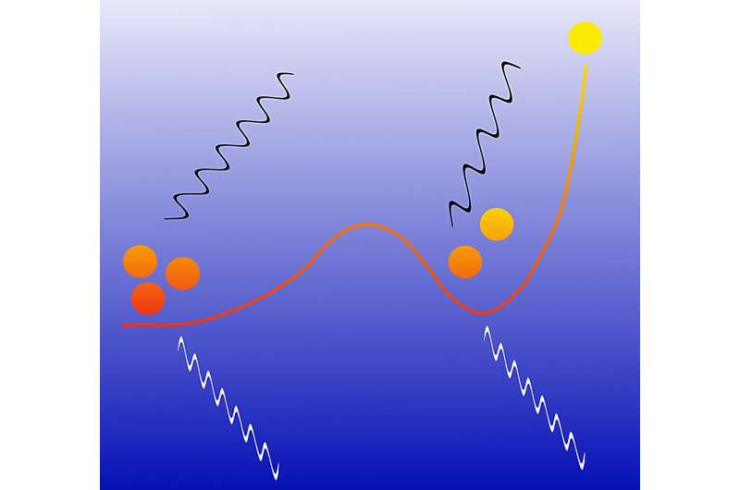Physics – New property of hydrogen predicted.
Hydrogen is the most common element in the universe. It determines the properties of stars and planets and is crucial for life on Earth—not least because of its role in climate-neutral energy supply. Generations of scientists in physics and chemistry have researched hydrogen very intensively, both in experiments and with the help of computer simulations.
Despite its very simple structure—a hydrogen atom consists of only one electron and one proton—many properties have still not been conclusively clarified.
Now, a research team from Christian-Albrechts-Universität zu Kiel (CAU) and Helmholtz-Zentrum Dresden-Rossendorf (HZDR) has predicted another surprising property of hydrogen: The element shows an unusual “roton-like behavior” when compressed under high pressure. This manifests itself, for example, in the fact that X-ray light is scattered by dense hydrogen in an unusual way.
🔥 What about we co-host a webinar? Let's educate, captivate, and convert the hydrogen economy!
Hydrogen Central is the global go-to online magazine for the hydrogen economy, we can help you host impactful webinars that become a global reference on your topic and are an evergreen source of leads. Click here to request more details
In the process, the X-ray photons transfer energy to the electrons, which is greater the greater the momentum transferred. In dense hydrogen, on the other hand, the energy can also decrease as the momentum transfer increases. These results are published in the current issue of the journal Physical Review Research and are highlighted by the editors as Editors’ Suggestion.
This was previously only found in completely different systems, such as in exotic so-called Bose fluids close to absolute temperature zero. Such liquids are superfluid, for example, quantum effects occur in them and they can no longer be described with classical statistical mechanics.
Professor Michael Bonitz from the Institute for Theoretical Physics and Astrophysics at CAU said:
This property of hydrogen is caused by the electrons, which are not bound in atoms.
Dr. Tobias Dornheim from the HZDR describes the behavior of the electrons:
If hydrogen is irradiated with X-ray photons of a certain wavelength, electrons can come unusually close to each other and even form pairs, although they repel each other.
In their computer simulations, the research team has worked out exact predictions for which parameters this roton behavior should be observable. Now it is up to researchers in experimental physics to prove it in practice.
READ the latest news shaping the hydrogen market at Hydrogen Central
New property of hydrogen predicted, August 7, 2023








